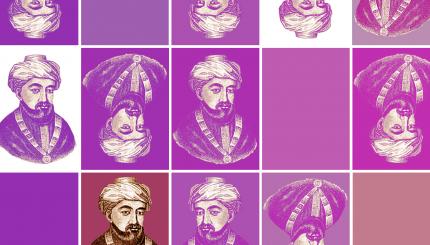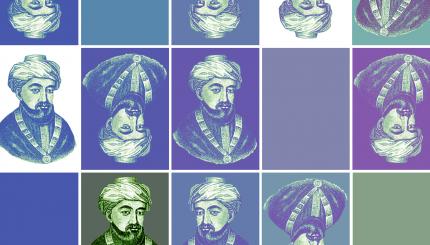Reprinted with permission from Responsa in a Moment, published by the Schechter Institute of Jewish Studies.
Question: It is common practice today for one company to sell the vital statistics of its clients to another company. It is also accepted that organizations–including rabbinic and philanthropic organizations–sell or give their address lists to other organizations. Computer software known as “spyware” frequently enters home and business computers and collects personal information about users without their informed consent. This information is then used for future advertising and marketing purposes. Finally, Caller ID allows a company receiving a call to see the caller’s phone number on a screen. As a result, companies that receive orders via 800 numbers can sell their customers’ phone and credit card numbers to other companies. What is the halakhic attitude towards these practices?
Responsum
At first glance, these questions seem trivial. What does it matter if someone distributes my vital statistics and as a result I receive junk mail and junk phone calls? Who does it harm? But on second thought, these practices symbolize a much more serious phenomenon–the inability of modern man to maintain privacy and confidentiality.
We live in an age of lack of privacy. There are many newspapers and “entertainment” programs devoted entirely to gossip and slander. Photographers and cameramen invade funerals and photograph the anguished cries of bereaved families. Our vital statistics and medical records are recorded on computers which can be invaded without too much effort. Through the Internet, one can break into the private computers of millions of individuals and companies.

Help us keep Jewish knowledge accessible to millions of people around the world.
Your donation to My Jewish Learning fuels endless journeys of Jewish discovery. With your help, My Jewish Learning can continue to provide nonstop opportunities for learning, connection and growth.
Finally, eleven years ago we witnessed what was probably the greatest show trial in the history of mankind. A poll taken in February 1995 showed that 82% of the population of the United States planned to follow the O. J. Simpson trial, along with millions of people around the world.
Proponents of this massive invasion of privacy cited the “public’s right to know.” Yet there is no such “right” in Jewish law. On the contrary, as we shall see below, in Judaism every human being has the right to privacy and confidentiality unless he or she waives that right and allows someone to enter his home or reveal his secret.
Therefore, there is no doubt that the halakhah forbids disclosure of vital statistics or confidential information about anyone without the express permission of the person in question. This conclusion is based on four prohibitions leading from the more general to the specific case under discussion.
Visual Privacy–Hezek R’iyah
First of all, the itself clearly shows great respect for visual privacy. In Genesis 3:7, we are told that Adam and Eve “perceived that they were naked and they sewed together fig leaves and made themselves loincloths.”
Later on, in Genesis 9:20-27, we read the story of Noah who got drunk in his tent. Ham, father of Canaan, saw his father’s nakedness and told his brothers Shem and Yefet, who took a cloth and walked backwards, covering Noah’s nakedness without looking. When Noah woke up, he cursed Canaan and blessed Shem and Yefet. Thus the Torah clearly indicates the importance of visual privacy and condemns those who violate this basic right.
In the , this right to visual privacy gave birth to the concept of “hezek r’iyah” or damage caused by looking. The Mishnah in Bava Batra 3:7 states: “In a common courtyard, a person should not open a door opposite a door and a window opposite a window.”
The (Bava Batra 60a) connects this principle to Balaam. When Balaam saw Israel dwelling according to tribes, he exclaimed: “how goodly are your tents O Jacob, your dwelling places O Israel!” (Numbers 24) The Talmud explains: “What did he see? He saw that their tent openings did not face each other. He said: these are worthy for God’s presence to rest upon them.”
The Rema adds in the Shulhan Arukh (Hoshen Mishpat 154:7) that it is forbidden to stand at your window and look into your neighbor’s courtyard, “lest he harm him by looking.” The Shulhan Arukh further rules (ibid., 154:3) that if Reuven wants to open a window into a common courtyard, Shimon can prevent it, and if Reuven opens the window, Shimon can block it up.
Privacy from Intruders
A second type of privacy protected by Jewish law and lore is the privacy of one’s domicile from unwanted or unannounced intruders. This attitude is expressed in three aggadic, or non-legal, statements.
The first two state that one should not enter a house, even one’s own, without warning. Rabbi Shimon bar Yochai (second century c.e.) states in Leviticus Rabbah (21:8) that “God hates four things which I also dislike…and a person who enters his own home suddenly and–there is no need to add–his neighbor’s home.” The midrash then relates that Rabbi Yohanan used to clear his throat before entering Rabbi Hanina’s house, in order to make sure that he was not invading anyone’s privacy.
We learn in Pesahim 112a that “Rabbi Akiva commanded his son Yehoshua seven things: my son…do not enter your house suddenly, how much more so your friend’s house.”
The third source goes one step further. Midrash Lekah Tov (to Leviticus 1:1) states that one may not enter his friend’s house without permission–and it derives this principle from God Himself! In Exodus 40:35 we are told that Moses could not enter the Tent of Meeting, whereas Leviticus 1:1 implies that God spoke to Moses in the Tent. The midrash teaches: “From this we learn that a person should not enter his friend’s house unless his friend [in Moses’ case, God] says ‘enter’.”
Protection from intruders also found legal expression. In Deuteronomy 24:10-11, the Torah forbids a creditor from entering the house of a debtor in order to take a pledge. Rather, when you make a loan of any sort to your fellow, you must not enter his house to seize his pledge. You must remain outside, while the person to whom you made the loan brings the pledge out to you.
The rabbis added that even an officer of the court may not enter the debtor’s house in order to take a pledge (Sifrei Devarim, par. 276; Tosefta Bava Metzia 10:8; Bava Metzia 113a-b), and this was codified by Maimonides (Hilkhot Malveh V’loveh 2:2) and the Shulhan Arukh (Hoshen Mishpat 97:6). Thus, even a person with a very good reason may not invade another person’s territorial privacy.
Protecting the Mail: The Herem of Rabbenu Gershom
A third type of privacy protected by Jewish law is the privacy of one’s mail, as defended by the herem (ban) of Rabbenu Gershom Me’or Hagolah (Germany, 960-1028).
He is the reputed author of a series of takkanot–rabbinic enactments governing various aspects of Jewish life. One of the takkanot attributed to him says that, “One should not read his friend’s letter” and some versions add, “without his knowledge and without his permission.” Indeed, until today some observant Jews write hdr”g (חדר”ג), an abbreviation of “herem d’rabbeinu Gershom,” on the outside of their letters.
Confidentiality
Finally, in addition to all of the above laws and legends intended to protect a person’s privacy, there are sources which prohibit the disclosure of secrets or confidential information, or require the permission of the person in question before that information may be revealed.
Proverbs 11:13 says that: “A base fellow gives away secrets, but a trustworthy soul keeps a confidence.” The Mishnah (Sanhedrin 3:7) uses this verse to teach that judges are not permitted to reveal their deliberations after a verdict is reached. This ruling was codified by the Rif (Sanhedrin, fol. 9a) and by Maimonides (Sanhedrin 22:7).
The Talmud (Sanhedrin 31a) adds a story about a student who revealed a secret from the House of Study twenty-two years after the fact. It is not clear what kind of secret was intended; Rashi (ad. loc.) says that it was some bit of slander or gossip. In any case, Rav Ami threw him out of the House of Study, saying: “This is a revealer of secrets!”
This source was followed by Rabbi Eliyahu ben Hayyim of Constantinople (1530-1610). He ruled in his responsa (Ra’anah, No. 111) that if one of the communal leaders revealed the secret deliberations of the City Council, he is disqualified from serving on the Council.
The last source we shall quote has the most direct bearing on our case. We read in the Talmud (Yoma 4b):
“How do we know that when a person tells something to his friend, the latter may not repeat it until the person says to him ‘go and say’? As it is written (Leviticus 1:1): ‘And God spoke to [Moses] from the Tent of Meeting to say?'”
This source–codified by Rabbi Moses of Coucy (France, ca. 1236, Semag, Negative Commandments, No. 9) and by Rabbi Abraham Gumbiner (Poland, 1637-1683, Magen Avraham to Orah Hayyim 156, middle of subparagraph 2)–indicates that one may not reveal a confidence without the express permission of the confider.
Thus, it is clear that Jewish law and tradition prohibit a business from revealing its clients’ particulars to other companies without the express permission of the person in question, both because of its general approach to privacy and because of the specific prohibition against disclosing secrets.
There is no question that it will be difficult to change society’s attitude towards privacy and confidentiality. But through our opposition to the so-called trivial practices described in the question, we can begin to arouse public consciousness to the problem and to slowly restore to all individuals the privacy and confidentiality which they deserve according to Jewish tradition.


